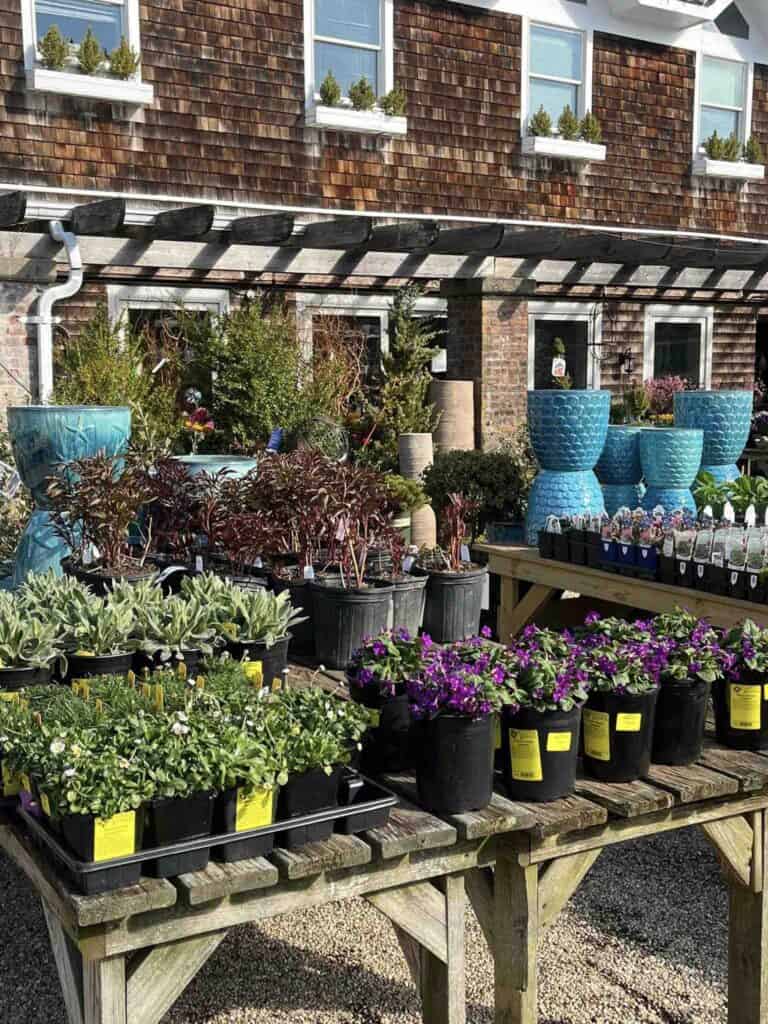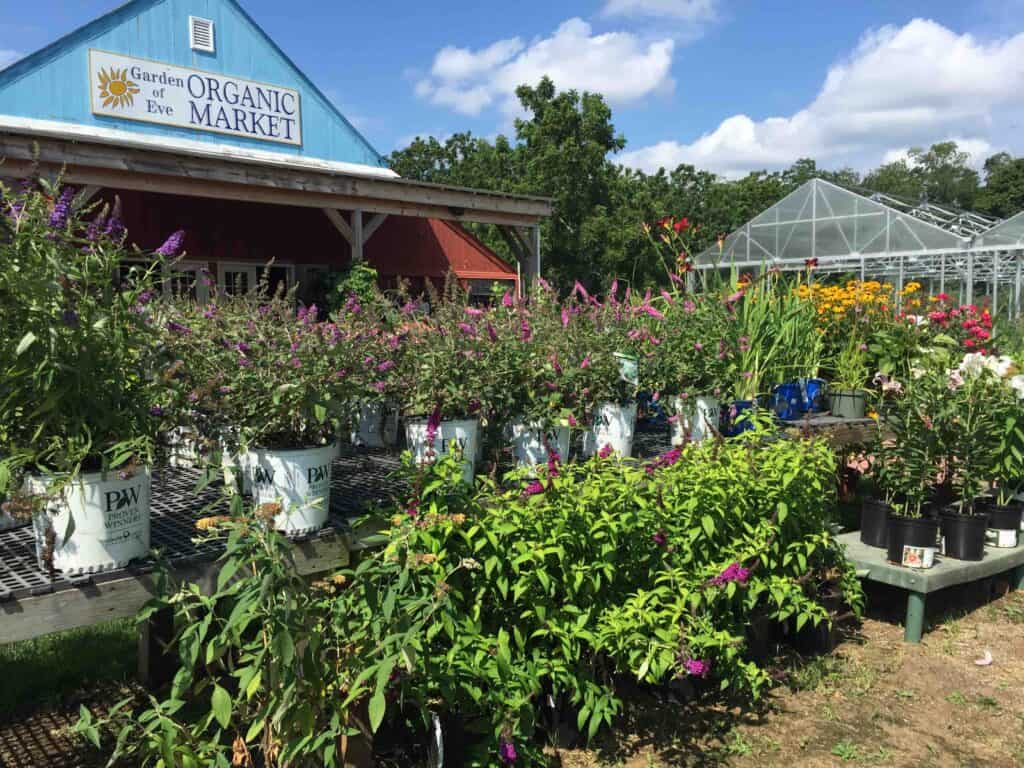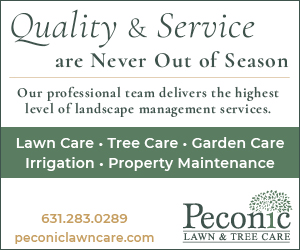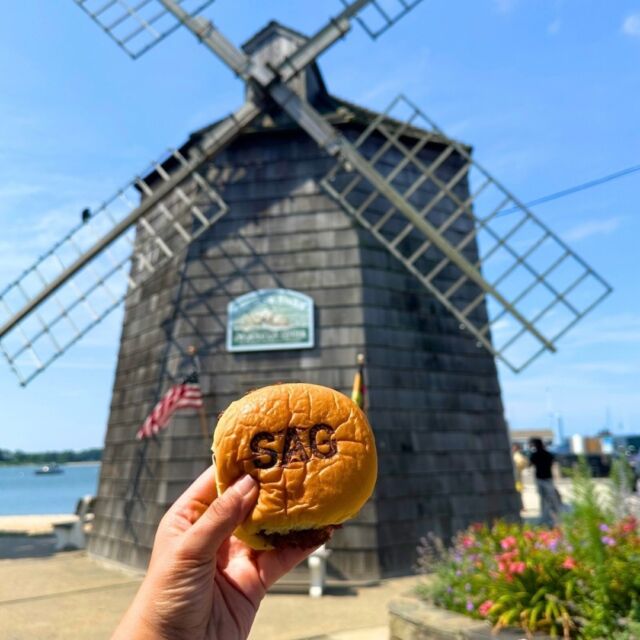It’s time to clean up your garden beds and borders and get them ready for spring. Before you start, scoop up a handful of soil and squeeze it into a ball in your hand, then open your hand. If the ball stays stuck together, the soil is still too wet to dig. But if the ball breaks apart when you open your hand, it’s OK to dig. Rake up any dead leaves left over from fall. If you had mulch on the garden to protect it over the winter, it’s time to remove it. Mulches of organic materials such as hay can be added to a compost bin or pile to decompose into compost to add organic matter to your garden soil.

Clean up any debris from the garden – remove any rocks that may have been brought to the soil surface over winter, and break up any large clods of soil. It’s also a good idea to test the soil pH (kits are available at garden centers); you can also send a soil sample to the Cornell Cooperative Extension in Riverhead to have it test more fully (for information call (631) 727-4126). Spread fertilizer (hopefully organic) over the soil surface and dig it in. Then rake the ground smooth to get ready for planting. You can find fertilizers at local nurseries as well as Agway.
If your garden is already established, all you need to do in spring is turn over the soil with a spade or tiller and work in a 1-inch layer of compost or other organic matter.
Plants are sold by garden centers and nurseries in three forms: in containers, bare-rooted or balled-and-burlapped. Annuals for bedding, herbs, and vegetables are usually sold in flats, six-packs or individual pots. Herbaceous (non-woody) perennials usually come in pots.
The best way to get top-quality plants is to buy from a reputable local nursery or garden center (see the list in the sidebar).
When choosing annual bedding plants, vegetables or herbs at the garden center, look for plants that are stocky, compact and bushy. Don’t buy the largest plants — they will suffer more shock when you transplant them, and their growth will be set back. It may be tempting to buy flower plants already in bloom, but these plants may actually end up producing most of the flowers (or crop) later than smaller plants that make a quicker and easier transition into your garden.
Annual and perennial plants are usually planted in groups or drifts in flower gardens, or in rows in vegetable plots and gardens of flowers for cutting. As the season progresses a general rule of thumb is to water when the soil feels dry an inch below the surface.
Whether you water by hand or with sprinklers or an irrigation system, it’s best to water in the morning. Try to avoid watering during the hottest part of the day, but in any case, water early enough that the plants will dry before dark. Wet plants at night are more prone to disease.

As you go through the season, spend time in your garden, daily if you can, or weekly. Cut flowers to bring indoors or in outdoor living areas where you can enjoy their colors and fragrances, or their flavors, if you’re growing vegetables and herbs.
Resources for East End Gardeners
Soil Testing: To understand the growing conditions in your garden it’s a good idea to get your soil tested. Home testing kits are available at garden centers.
A great resource is the Cornell Cooperative Extension’s Horticulture Diagnostic Lab. Gardeners can have a sample of their soil tested for pH and conductivity (soluble salts). Results can be sent via email or regular mail. Call them for information on how to take a soil sample from your garden and get it to them: (631) 727-4126.
Garden advice: The Cornell Cooperative Extension can also help diagnose plant problems and diseases, answer questions about plants, gardens, landscapes and lawns, or identify insect and tick specimens. Their office is located at 423 Griffing Avenue in Riverhead. Open weekdays 9am – 4 pm. Or call their information line Monday to Friday 9am to 12noon: (631) 727-4126.
Talmage Farm Agway
1122 Osborn Ave., Riverhead
(631) 727-3100 | talmagefarm.com
Owned by a farming family, this is a great resource for lawn and garden plants, tools, supplies, equipment and more for farmers and gardeners. Plants are also available during the growing season, and there’s a great selection of seeds. Bird lovers will find feeders, houses and food. There are also supplies for pets, and chickens (they have baby chicks in spring).
East End Nurseries and Garden Centers
South Fork:
Enchanted Gardens
210 Montauk Highway
Remsenburg-Speonk
(631) 801-2814
Aspatuck Gardens Inc.
303 Montauk Highway, WHB
(631) 288-3222
Hampton Nursery & Landscapes
205 Montauk Highway, HB
(631) 728-1160
Fowler’s Garden Center
175 North Sea Road, SH
(631) 283-5515
Eastlands Nursery & Farms
1260 Montauk Highway, WM
(631) 726-1961
Marders
120 Snake Hollow Road, BH
(631) 537-3700
Twin Forks Nursery
1471 Scuttlehole Road, BH
(631) 324-0461
Wittendale’s Florist & Greenhouses
89 Newtown Lane, EH
(631) 324-7160
Mahoney Farm
162 Long Lane, EH
(631) 324-6574
Bayberry House & Garden Center
96 Montauk Highway
Amagansett
(631) 324-6574
North Fork:
Garden of Eve Organic Farm
4558 Sound Avenue. Riverhead
(631) 722 – 8777
Verderber Garden Center
459 Main Road, Riverhead
(631) 722-4388
[email protected]
Jim Stakey Greenhouses
270 West Lane
Aquebogue
(631) 722-4435
Long Season Farms
1017 Main Road, Aquebogue
(631) 779-3360
North Fork Nursery
448 Herricks Lane
Jamesport
(631) 722-3850
Shade Trees Nursery
1875 Main Road
Jamesport
(631) 722-4041
shadetreesnursery.com
Trimble’s of Corchaug Nursery
20985 Main Road
Cutchogue
(631) 734-6494
trimblesnursery.com
(opens April 1)
Zuhoski Farms
11825 Oregon Road
Cutchogue
(631) 734-5036
Family-owned tree and shrub farm


















![At @inspirseniorliving, they’re transforming senior living and elevating every dimension of life. With a philosophy that embraces enhanced wellness and immersive experiences, their communities offer residents a lifestyle that meets and exceeds everything they’ve envisioned for their lives; including Assisted Living, Memory Care, or Enhanced Care. [link in bio]](https://hamptonsrealestateshowcase.com/wp-content/uploads/sb-instagram-feed-images/452692090_1818077558601184_7837181803899896025_nfull.jpg)
![A winding private drive leads the way to 198 Two Holes of Water Road, situated on 10± acres with plenty of seclusion, privacy, and an all weather tennis court. After undergoing a top-to-bottom renovation in 2019, the estate has been marked by dramatic sculptural touches, wide expanses of scenic space, and is ready for immediate occupancy. Represented by @tomcavallo of @douglaselliman. [link in bio]](https://hamptonsrealestateshowcase.com/wp-content/uploads/sb-instagram-feed-images/452714375_18452144299030135_7245639606158274147_nfull.jpg)


![When Brooke Abrams undertook the interior decoration of an ultra-modern beach house designed by Bates Masi + Architects, her clients wanted everything to look very "rich and luxurious." In addition to unifying the interior space with the exterior space, Abrams sought to bring a sense of cohesiveness to the house. “It had a lot of beautiful pale woodwork in creams and beiges and greys,” she recalls. “Rather than introduce new colors, I felt it was important to stay within that neutral palate so that everything felt integrated.” [link in bio]](https://hamptonsrealestateshowcase.com/wp-content/uploads/sb-instagram-feed-images/452279191_374759435318292_2948881216648686178_nfull.jpg)


